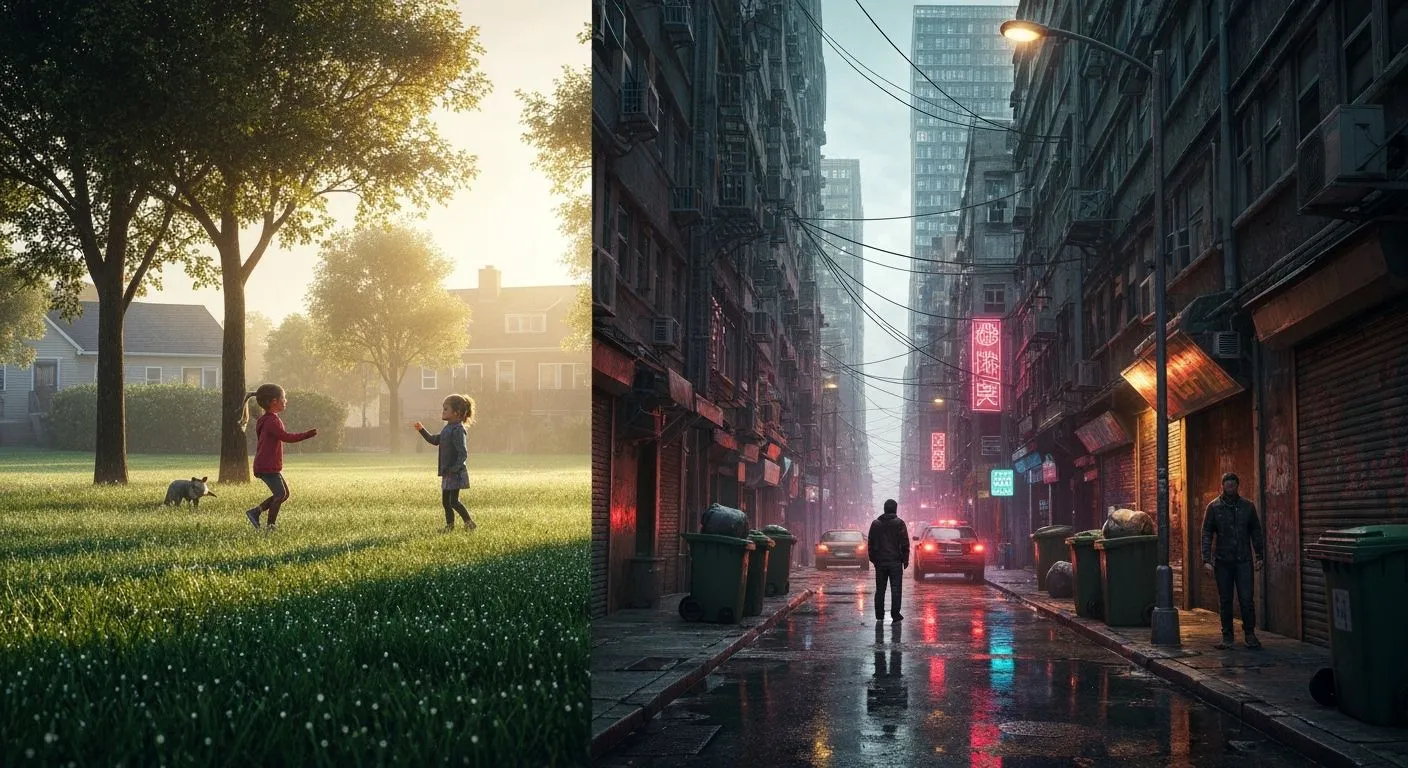Income inequality is the elephant in the room. No, scratch that, it’s the entire herd. The rich keep grazing on returns that grow faster than the economy itself, while the rest of us fight over scraps. The rules of society start bending in ways that nobody admits out loud. As Piketty has shown, capital accumulates faster than wages. It creates a feedback loop that is brutally efficient at concentrating wealth at the top.
If you want to understand why societies wobble, falter, or tilt toward extremism, start with money. Notice who gets to keep hoarding it while everyone else scrambles.
Next, notice how most discussions of inequality pause at income, take the recent OECD report on global wages, for instance, sometimes education, but rarely the layers beneath. Rarely do they attend to the threads that are almost invisible: healthspan, quiet anxiety, cultural erasure, auditory pollution, and spatial injustice. Not to mention the staggering burden of uncredited care work. These are the textures of inequality that live in bodies, in homes, in the small, daily negotiations of existence.
It’s in the morning commute. It’s in the way your coffee costs differently depending on your postcode. Really, it’s everywhere. That’s the easy, visible stuff, the tip of the iceberg. What really gnaws at the edges of society, the bits that aren’t in glossy reports or smug TED talks, are the inequalities we barely name, or forget exist.
Then tere’s the inequality of sound. The middle-class suburbs hum with the quiet confidence of broadband, school plays, and dental check-ups. Meanwhile, a child in a housing estate hears sirens and shouted arguments before breakfast. Their world is not just economically poorer. It is aurally, atmospherically, emotionally impoverished in ways no spreadsheet will ever capture.
And inequality of memory. Those with social capital inherit histories, photographs, names, anecdotes, an easy sense of belonging. Those without, inherit erasure. Try telling a young person who’s never been on a train that the country once had a network connecting all of its towns. Or that once, a library could be a palace of imagination. For them, these are abstract concepts. Luxuries of memory, not lived experience.
Inequality in patience is subtler but crueler. The bureaucratic system is calibrated for those who can wait, who have the time and stability to navigate forms, appeals, and jargon. For the chronically busy, the precariously housed, the digitally disconnected, every delay compounds. Every procedure punishes. Waiting itself is a kind of taxation, but levied unfairly.
And then there’s the inequality of imagination. People at the top of wealth charts can invent futures, fund research, gamble on risks because their losses are papered over with prestige and privilege. Those at the bottom? Their imagination is throttled. Survival takes precedence, and what little creativity remains is practical, how to stretch a food parcel, which bus route saves money, or how to shield a child from the leaking roof without a hammer. It is gritty, applied imagination, not the elegant variety that gets tweeted about.
Even in speech, inequality whispers. Accent, grammar, word choice, subtle indicators of upbringing influence who gets hired, who gets laughed at, who gets trusted. One person’s colourful idiom is another person’s perceived ignorance. The richness of language is ironically stratified.
All these threads, economic, sensory, cultural, and bureaucratic, don’t just make life unfair. They accumulate, quietly bending the rules of society until the structure itself begins to wobble. People feel left behind, unheard, and squeezed; trust frays; resentment festers. When enough of these fissures intersect, the result is fertile ground for populism, extremism, polarisation, and social upheaval. The subtle, almost invisible inequalities we live with every day are the tremors before the quake, the reason societies falter not because people are inherently violent, but because the system nudges them toward anyone promising answers, scapegoats, or shortcuts to dignity.
It is messy, like spilled ink on a ledger you were never meant to read. Inequality is not a straight line from poverty to wealth. It is a crumpled sheet of paper, folded, refolded, punctured with holes you only notice when you press your ear to it. The challenge is not to flatten it neatly for a graph or a policy paper. The challenge is to acknowledge the mess, to recognise the noise and silence, the overlooked and undervalued, and to wrestle with it honestly.
Because until we can hear the hum, the siren, the unspoken, the inherited erasures, truly hear it, not just glance at it, any talk of “closing the gap” will remain a polite fiction. Neatly packaged and utterly insufficient.
